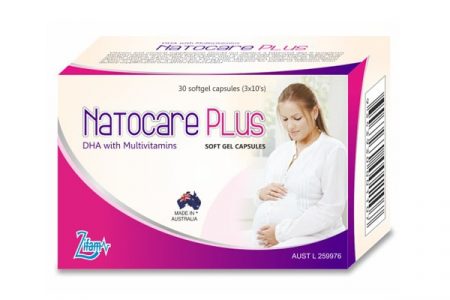
Good Nutrition Begins in the Womb !!
Pregnancy is a wonderful phase in a woman’ s life. While it is distinct as it brings about marked physiological changes, it can also be often associated with stress and anxieties; especially when it comes to what women consume at this critical period in their lives.
Pregnancy is not a time for strict diets, but for eating sensibly. Think wholesome, nourishing foods for the health of both mother and baby.
Here, we briefly review the important nutrients required by women for each stage of pregnancy essential for healthy journey through pregnancy and beyond and also for a healthy baby.
1st Trimester – Marks the Organ Development of the Embryo
Folic Acid: The first trimester is where most women are adjusting to their surges in hormones. By the beginning of week 5 (even though the fetus is the size of an apple seed) the baby has all the correct building blocks in place for its vital organs. At this stage, folic acid is one of the important key nutrients for the normal development of the neural tube. Low levels are commonly associated with a neural tube defects like spinal bifida and cleft palate.
Even before conception, various public health guidelines encourage women who are planning a family to top up their levels of folic acid. Food sources of folic acid include almonds, avocado, legumes, dark green leafy vegetables, broccoli, asparagus and dried figs. A prenatal specific multi-vitamin supplement will essentially contain folic acid.
2nd Trimester – Marks the Growth of Foetus
By the beginning of this stage of pregnancy, the organ development process is quite complete, and it is now when increase in the weight and height of the foetus continues.
At this stage, the, overall balance diet is critical. Also, by now, most women are adapting well to the morning sickness as they get a few weeks through it. Consider the following nutritional pointers while selecting the diet regimen.
- Vegetables: Think colourful varieties packed full of antioxidants like beetroot, carrots, red pepper, broccoli, tomatoes, as well as plenty of dark green leafy vegetables.
- Wholegrain or wholemeal carbohydrates: Sweet potato, quinoa, wholemeal pasta, buckwheat, oats and rye.
- Proteins: Either vegetarian sources like eggs, beans and lentils or animal sources and fish.
- Good Fats: Avocado, pumpkin seeds, sunflower seeds, flaxseed and chia seeds.
3rd Trimester – Fetus growth Continues & Preparedness for Delivery & Life Beyond
Nutrients like calcium, magnesium, vitamin D and omega-3 fats are particularly important during this trimester to strengthen your baby’s bones.
- Calcium: As most people know, calcium can be found in dairy products, but smaller amounts can also be found in almonds, tofu and dark green leafy vegetables.
- Magnesium: Good sources can be found in foods like – avocado, almonds, walnuts, tofu, buckwheat, dark green leafy vegetables and apricots.
- Vitamin D: Actually, comes from sunshine, so just 5 – 10 minutes of sun exposure without sunscreen may be enough to keep levels up. However, this depends great based which latitude of the globe we are living.
Baby’s brain development is supported by good sources of:
Omega-3 fats: Can found in foods such as oily fish like – salmon, mackerel, trout and sardines. Plant-based sources of omega-3 fats from foods like chia seeds and flaxseed.
Eicosapentaenoic acid (EPA) and docosahexaenoic acid (DHA) may help in overall physical growth, mental development and even also could help modulate responses to allergic tendencies. DHA supplementation may also help to reduce maternal stress during late pregnancy.
Healthy diet and nutrition are an essential component for a healthy journey through pregnancy and life beyond. Dietary regimen and interventions need to be planned right from the time of pregnancy planning for health pregnancy, maternal, foetal and child health outcomes.
An Awareness Initiative from Makers of:


Product of:

Zifam Pinnacle Pty Ltd,
Sydney, Australia



